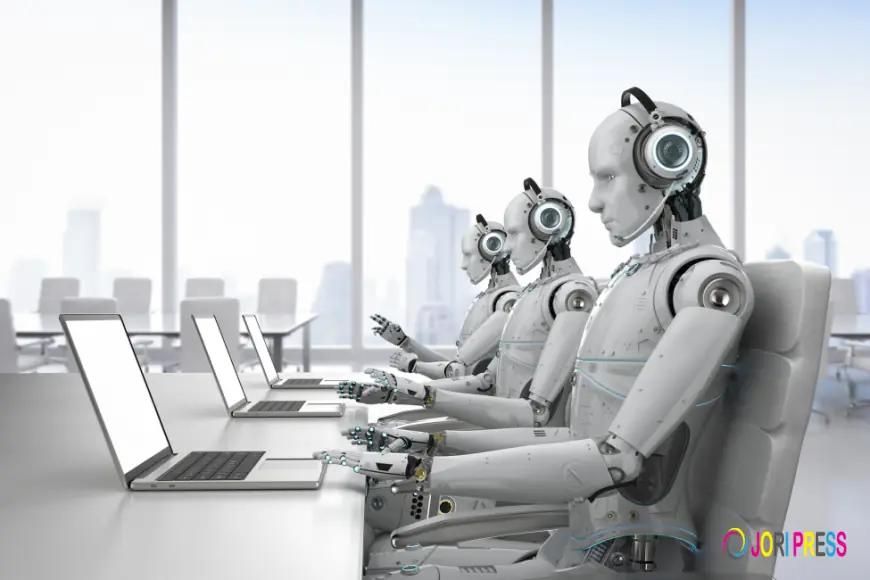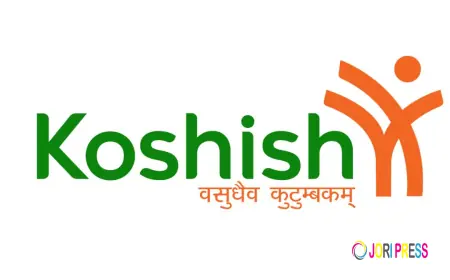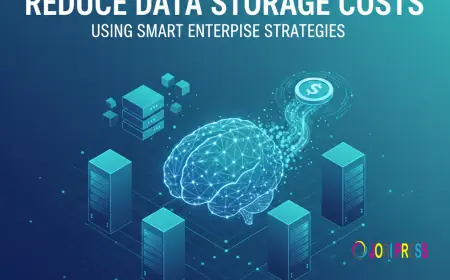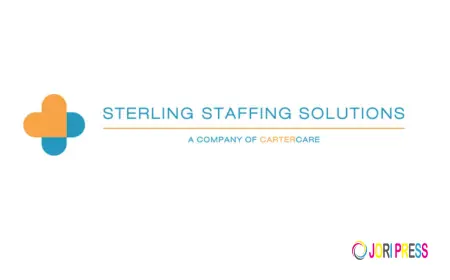The Role of AI in Automating Governance for Decentralized DApps
Discover how AI automates governance in DApps. Professional dapp development services for secure, efficient, and intelligent decentralized applications.

Introduction: The Intersection of AI and DApp Governance
Decentralized applications (DApps) have introduced new paradigms of transparency, security, and user control through blockchain technology. However, managing governance within DApps—especially in decentralized autonomous organizations (DAOs)—can be challenging due to the complexity of decision-making, voting mechanisms, and protocol updates.
Artificial Intelligence (AI) is emerging as a transformative solution for automating governance in decentralized ecosystems. AI-driven DApps can analyze data, predict outcomes, optimize voting mechanisms, and enforce compliance rules without central intervention. This combination of AI and decentralized technology offers a new layer of intelligent governance, enabling DApps to scale, evolve, and operate efficiently.
Businesses seeking to leverage AI-powered governance often rely on a professional dapp development company to provide comprehensive dapp development services, including AI integration, smart contract development, and secure deployment.
This article explores the role of AI in automating governance, the underlying architecture, real-world applications, benefits, challenges, and future directions for AI-governed DApps.
Understanding Governance Challenges in DApps
Decentralized governance allows stakeholders to make decisions collectively without centralized authority. While this ensures transparency and fairness, it introduces several challenges:
-
Complex Voting Systems: Multi-tiered voting structures, quorum requirements, and weighted votes can be difficult to manage manually.
-
Data Overload: Large-scale DApps and DAOs generate massive datasets that are hard to analyze without AI.
-
Delayed Decision-Making: Human-driven governance can be slow, affecting efficiency and user experience.
-
Security and Compliance Risks: Ensuring adherence to protocol rules, regulatory requirements, and security standards is challenging without automated systems.
-
Predicting Outcomes: Understanding potential impacts of governance decisions requires sophisticated analysis and predictive modeling.
By incorporating AI, DApps can overcome these challenges, offering predictive, adaptive, and automated governance solutions. A professional dapp development company can provide dapp development services to design and deploy AI-governed frameworks efficiently.
Architecture of AI-Enabled Governance DApps
Building AI-governed DApps requires a multi-layered architecture that combines blockchain security with intelligent decision-making.
1. Smart Contract Layer
Smart contracts form the backbone of decentralized governance. They enforce rules, automate voting outcomes, and execute decisions autonomously. AI integration enhances smart contracts by providing predictive analytics, decision optimization, and anomaly detection.
2. AI and Analytics Layer
The AI layer processes on-chain and off-chain data, identifies trends, and predicts outcomes for governance proposals. Machine learning algorithms, natural language processing, and reinforcement learning models enable DApps to recommend optimal decisions or automatically trigger governance actions.
3. Data Layer
Governance decisions rely on extensive datasets, including user behavior, voting history, external market conditions, and protocol activity. Secure off-chain storage and decentralized databases facilitate efficient data access and analysis.
4. Oracle Layer
Oracles connect DApps with external data sources, providing verified real-world information for decision-making. Reliable oracles ensure AI models receive accurate and timely inputs to make informed governance recommendations.
5. User Interface Layer
The frontend layer presents governance data, predictions, and recommendations in an intuitive manner. Stakeholders can interact with AI insights, review automated suggestions, and participate in voting through user-friendly dashboards.
6. Security and Compliance Layer
AI-governed DApps require robust security protocols to prevent malicious activities, ensure compliance, and maintain data integrity. Encryption, identity verification, and zero-knowledge proofs are critical components of this layer.
Professional dapp development services ensure seamless integration of these layers, enabling AI-governed DApps to operate efficiently, securely, and transparently.
Use Cases of AI in DApp Governance
1. Autonomous DAO Decision-Making
AI can analyze stakeholder proposals, evaluate potential outcomes, and recommend optimal actions. Some DApps even allow AI to automatically execute decisions based on predefined rules, reducing delays and improving efficiency.
2. Voting Optimization and Fraud Detection
Machine learning models detect anomalies, suspicious voting patterns, and potential collusion, ensuring that governance outcomes remain fair and tamper-proof. AI can also optimize voting mechanisms for maximum stakeholder participation and impact.
3. Regulatory Compliance Automation
AI helps monitor DApp activity for compliance with global regulations, such as KYC/AML requirements, financial reporting, and privacy laws. Automated compliance reduces human error and ensures adherence to legal standards.
4. Predictive Governance Insights
By analyzing historical voting patterns, on-chain activity, and external market data, AI provides predictive insights on proposal outcomes, resource allocation, and strategic decisions.
5. Resource Allocation and Protocol Upgrades
AI can recommend and automate resource distribution, treasury management, and protocol updates, improving operational efficiency for decentralized platforms.
Partnering with a dapp development company ensures that these AI-governed functionalities are implemented effectively through expert dapp development services.
Benefits of AI-Driven Governance in DApps
Enhanced Decision-Making
AI evaluates vast amounts of data to optimize proposals, identify risks, and predict outcomes, enhancing overall governance quality.
Efficiency and Speed
Automation reduces delays associated with human decision-making, ensuring timely execution of critical operations.
Fairness and Transparency
AI algorithms can detect anomalies, prevent collusion, and ensure equitable governance processes.
Scalability
AI-powered governance enables DApps and DAOs to manage thousands of stakeholders and complex proposals without compromising efficiency.
Security and Compliance
AI models monitor activities for compliance and flag suspicious behavior, enhancing security and adherence to regulations.
Professional dapp development services allow businesses to leverage these benefits while maintaining decentralized integrity and blockchain security.
Challenges in Implementing AI Governance in DApps
Data Integrity and Privacy
AI models require high-quality, reliable data. Ensuring data privacy and integrity in a decentralized ecosystem is complex.
Algorithmic Bias
Biases in AI models may affect governance outcomes. Continuous monitoring and model refinement are essential.
Complexity of Integration
Combining AI with blockchain, smart contracts, and decentralized storage requires advanced technical expertise.
Security Risks
AI decision-making layers must be secure from adversarial attacks, manipulation, or faulty predictions.
Regulatory Uncertainty
Global regulatory frameworks for AI-driven governance in decentralized ecosystems are still evolving, posing compliance challenges.
A professional dapp development company addresses these challenges by providing robust, secure, and compliant dapp development services.
Future Trends in AI-Governed DApps
The future of AI in DApp governance is promising, with emerging trends such as:
-
Fully Autonomous DAOs: AI systems capable of managing complete decision-making cycles with minimal human intervention.
-
Cross-Chain Governance: AI-driven coordination across multiple blockchains for interoperable governance decisions.
-
Predictive Policy Models: AI models predicting governance risks, opportunities, and strategic directions for DApps.
-
AI-Assisted Community Engagement: Enhancing participation by recommending actions to stakeholders based on engagement and historical activity.
-
Decentralized AI Marketplaces: Networks where AI algorithms themselves are governed and traded in decentralized environments.
Leveraging a professional dapp development company ensures that businesses are equipped to adopt these innovations effectively through expert dapp development services.
Conclusion
AI-driven governance is transforming the decentralized application ecosystem. By automating decision-making, optimizing voting, ensuring compliance, and providing predictive insights, AI empowers DApps to operate more efficiently, transparently, and securely.
Organizations seeking to implement AI-governed DApps should engage a professional dapp development company. Comprehensive dapp development services ensure seamless AI integration, secure smart contract deployment, and resilient governance mechanisms, enabling enterprises to thrive in the next generation of decentralized applications.
FAQs
1. How does AI improve DApp governance?
AI enhances decision-making by analyzing data, predicting outcomes, optimizing voting, and detecting anomalies, enabling automated and fair governance processes.
2. What industries benefit from AI-governed DApps?
Finance, DeFi, gaming, supply chain, healthcare, and decentralized communities benefit from AI governance through efficiency, compliance, and predictive insights.
3. Why hire a dapp development company for AI governance?
Integrating AI with blockchain, smart contracts, and decentralized storage requires expertise. A professional dapp development company provides end-to-end dapp development services.
4. What are the challenges of AI in DApp governance?
Challenges include data integrity, algorithmic bias, integration complexity, security risks, and regulatory uncertainty.
5. Can AI fully automate a DAO?
Yes, AI can manage voting, proposals, treasury allocation, and compliance autonomously, although human oversight is often recommended for critical strategic decisions.
What's Your Reaction?
 Like
0
Like
0
 Dislike
0
Dislike
0
 Love
0
Love
0
 Funny
0
Funny
0
 Angry
0
Angry
0
 Sad
0
Sad
0
 Wow
0
Wow
0















































